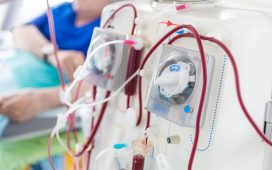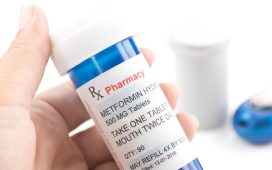Early administration of high-titer convalescent plasma against SARS-CoV-2 reduces progression in mildly ill older adults
FRIDAY, Jan. 8, 2021 (HealthDay News) — Progression of mild COVID-19 can be reduced by early administration of high-titer convalescent plasma against severe acute respiratory syndrome coronavirus 2 (SARS-CoV-2), according to a study published online Jan. 6 in the New England Journal of Medicine.
Romina Libster, M.D., from Fundaci ³n INFANT in Buenos Aires, and colleagues conducted a randomized, double-blind trial of convalescent plasma with high immunoglobulin G titers against SARS-CoV-2 in older adults within 72 hours after onset of mild COVID-19 symptoms. Because cases of COVID-19 in the trial region decreased considerably and steady enrollment of patients became virtually impossible, the trial was stopped early at 76 percent of its projected sample size.
One hundred sixty patients were randomly assigned to either 250 mL of convalescent plasma with an immunoglobulin G titer greater than 1:1000 against SARS-CoV-2 spike protein or placebo. The researchers found that severe respiratory disease developed in 16 and 31 percent of patients who received convalescent plasma and placebo, respectively, in the intention-to-treat population (relative risk, 0.52). A larger effect size was seen in a modified intention-to-treat analysis excluding six patients with a primary end point before infusion of convalescent plasma or placebo (relative risk, 0.40). There were no solicited adverse events observed.
“This simple and inexpensive intervention can reduce demands on the health care system and may save lives,” the authors write. “Early infusions of convalescent plasma can provide a bridge to recovery for at-risk patients until vaccines become widely available.”
Several pharmaceutical companies provided study funding.
Copyright © 2020 HealthDay. All rights reserved.








